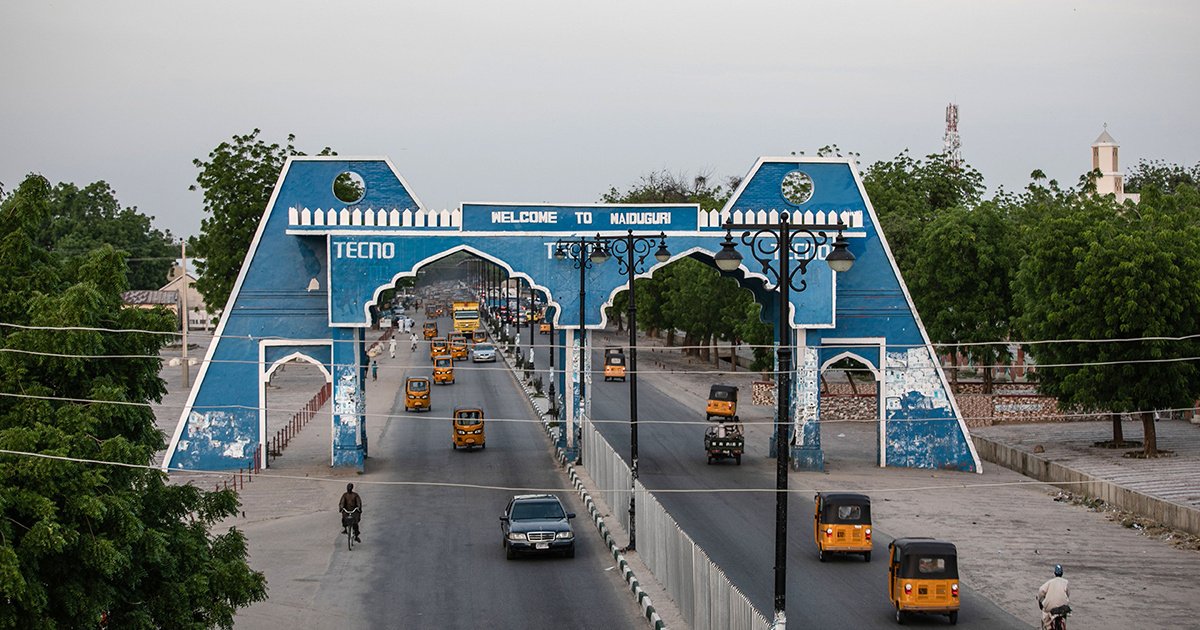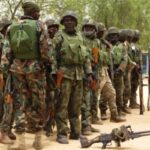When the bulbs blinked and faded away in many homes in Maiduguri that dusty and cold January morning, most residents didn’t realise that it would be months ahead before they enjoy electricity. They all thought it was the usual outage and normality would return after some interval. When the outage persisted throughout the day, the social media became suffused with the issue and were touting all sorts of causes. By the end of the day, the grim confirmation arrived: it was the insurgent Boko Haram terrorists that have dealt another devastating blow to the economic and social wellbeing of Maiduguri by sabotaging the transmission line from Damaturu that feeds the beleaguered city. Already the other line feeding the city from Damboa has been down for reasons attributable to the same cause.
The Boko Haram terrorists have now stepped up their capacities. They have gone beyond making the highways into Maiduguri impassable and have found additional ways to inflict pain on all the economic and social wellbeing of the capital city by denying it of vital electricity supplies. It would not be the first time they disrupted electricity supplies to the city. Exactly a year ago, also in January, they sabotaged the 330kV line from Damaturu and it took heart-wrenching days to restore power. Again, a year down the line in May 2019, the terrorists attacked the Molai 330/132 transmission substation, just outside Maiduguri, sabotaging it and resulting in a total blackout, that took so many days to sort out.
- World Water Day: Over 60m Nigerians risk water-related diseases
- Insecurity: Nigeria’s corporate existence threatened — Northern govs
While at Molai, the terrorists behaved typically like bulls in china shop. Besides targeting the transmission for special attention, they also went on a spree of the destruction of things they could not carry. They made away with a Hilux vehicle and destroyed the remaining truck and other Hilux vehicles. In the transmission control room, they did not spare the computers, monitors and printer which they all smashed to splinters. When they were departing they also needlessly shattered all the glass windows of the control room and the staff house.
The chronology of these attacks shows clearly that these terrorists know where to hit for maximum pain and publicity. And with time they seem to be stepping up their acts, getting to be more devious as we get more laid-back on the security around our major assets. When they brought down the towers in the Damaturu-Maiduguri transmission line, both the Transmission Company of Nigeria (TCN) officials and the electricity consumers alike thought it would be a matter of days to spring up the towers and return power. In fact, when the TCN Managing Director, Engr. Sule Abdulaziz, visited the site of the reconstruction works of the towers on 21st February, he expressed confidence that power could be restored within two weeks. Unfortunately, he didn’t reckon that someone would be lackadaisical with security and the terrorists were able to come around in the dead of night and plant mines in the perimeter of the reconstruction site. When valuable technical staff arrived the next day they had the misfortune of stepping on these mines leading to various degrees of injuries.
It is now over two months since Maiduguri has been without electricity and nobody is venturing to say when power would be restored. Electricity is now so central to our lives that lack of it translates into many other deprivations, particularly lack of water and the invidious effects on the provision of health services.
Meanwhile, the hot season is just beginning with day temperatures already rising to giddying heights. It is the season most associated with many ailments. To make matters worse, the Ramadan fasting that will start shortly will fall within this hot period. One can imagine the suffering that awaits Maiduguri residents if electricity is not restored as quickly as possible.
But the most surprising of this ongoing saga is how the citizens have taken this deprivation with dignified equanimity. After all, it is just one more within a litany of many others. The social and economic infrastructure in Maiduguri is already under severe strain due to a ballooning population in the last few years. Due to the unrelenting military engagements with the terrorists that have taken over most of northern Borno, Maiduguri had been made to take in hundreds and thousands of displaced kith and kin. It has the largest concentration of internally displaced persons (IDPs) in the country. Once the centre of commerce in that region, there is little trade going on now and many industries are known to have gone under.
Maiduguri is the only Nigerian capital city that cannot be reached through the highways. There are at least five highways running into Maiduguri, most in reasonable conditions, but none can be traversed without the fear of vicious attack. As commuters who frequent these highways would tell you, the fear generated by these terrorists on the highways is always palpable. For some years the only surviving safe corridor, the Damaturu highway, had in the last many months been rendered unsafe by repeated attacks.
The garrison city is gradually being choked. A large population is holed up, risky to be reached by road and is now without electricity supply. One cannot hazard what would be next.

 Join Daily Trust WhatsApp Community For Quick Access To News and Happenings Around You.
Join Daily Trust WhatsApp Community For Quick Access To News and Happenings Around You.

